Eliminating exclusion through respect
On Wednesday afternoon, students got a side of flash-mob with their kale salads.
Saint Louis University’s occupational therapy department and the St. Louis Arc teamed up to bring the flash mob to SLU. For the past six or seven years, this partnership has been bringing the groove around St. Louis in an effort to end the use of the r-word. They aim to replace the old r-word with a new one: respect.
To individuals with intellectual disabilities, the r-word represents an expression of hate. This is just one of the many things that the Social Justice Committee at the St. Louis Arc aims to change. The St. Louis Arc is a nonprofit that strives to provide those with disabilities an opportunity to live a regular life. The disabilities range from intellectual development and brain injury to cerebral palsy and autism They encourage and provide “independence, respect, regular treatment with the same opportunities, language assistance, work and housing,” according to Ann Mangelsdorf, the assistant director of Family Support & Advocacy for the St. Louis Arc.
In the meeting before the performance, students and Arc members gathered to say hello to one another and prepare themselves. Handshakes were traded for hugs and happy faces. A young man from the Arc said, “I’m nervous about dancing with all these girls.” His caretaker assured him, “But you love to dance, there’s just a few girls here.” He was right, the majority of the dancers were young ladies in the OT program.
The flash mob met several times to rehearse prior to the performance on Wednesday. The performance did not go off without a hiccup, though. As one might expect from a room full of occupational therapy students, someone suggested that the room stretch before going out to perform. While stretching out in a room in the BSC, organizers realized that they had forgotten both the music and the speakers. Quick thinking and a few favors later, the show was still set to go on.
The room erupted when they heard a test run of Taylor Swift’s “Shake it Off.” A wave of high-fives and fist bumps flooded the small space. After the cheering died down, dancers started to file out of the room.
Students in the BSC had bewildered looks on their faces as an army of tie-dye clad dancers walked down the stairs and engulfed the area. The anticipation built as more and more dancers made their way down the stairs. Soon, you couldn’t turn your head without getting a glimpse of tie-dye. The music began and the still crowd came to life.
Excited dancers thrust their hands in the air and waved them around. Every individual had his or her own flair to add. At one point, one of the dancers started to bust out in a world-class rendition of the robot.
Students were surrounded as the performance ensued. Amanda Schultz was enjoying her lunch and using her laptop, but her eyes and ears were quickly drawn to the marvelous clamour around her. Students who entered the BSC were just as bewildered as those before them. A group of girls walking to Panera had stunned expressions. “What is going on right now?” they said.
The song ended, but it wasn’t over yet. One of the coordinators yelled, “ I would like to thank Saint Louis University’s OT school for making this possible. Remember that we are dancing for respect for all people. Who wants to go again?” Applause echoed through the floor.
For the second time, dancers left their sweet moves on the dance floor. At the end, everyone struck their own pose, and, once again, the crowd roared. There was not a single person in the room without a hint of a smile on their face.
Mangelsdorf said, “This is one of the highlights of their day.” No doubt, everyone enjoyed themselves, and at the same time they were spreading a crucial message: The r-word is not okay. Those with disabilities are just as capable as regular people, and for that they deserve respect.
Your donation will support the student journalists of Saint Louis University. Your contribution will help us cover our annual website hosting costs.


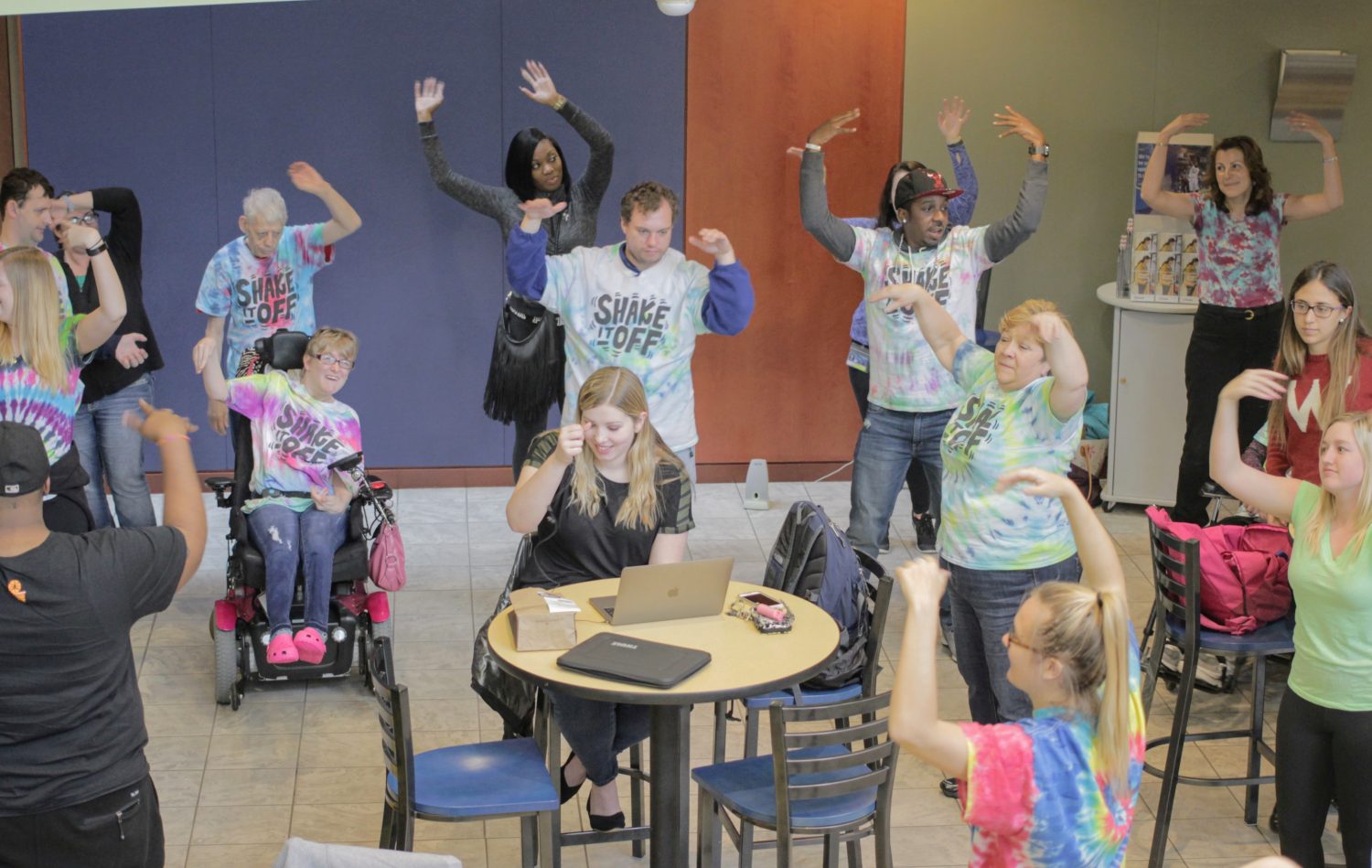

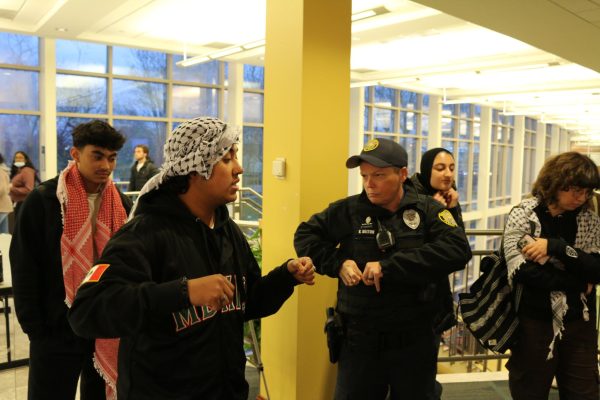


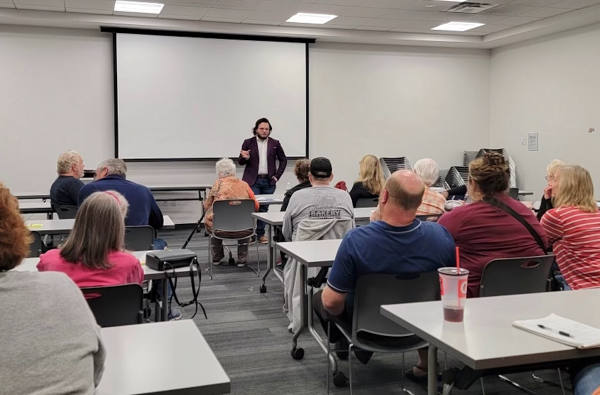
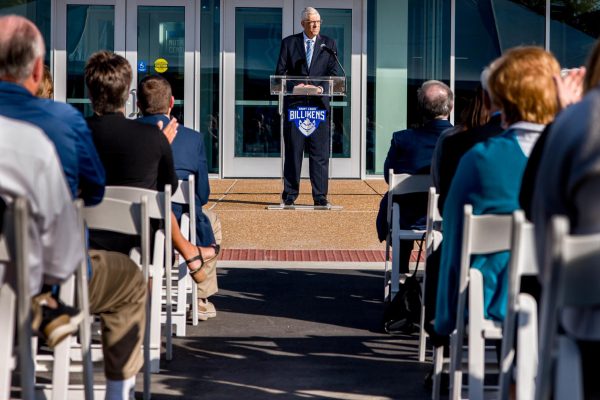
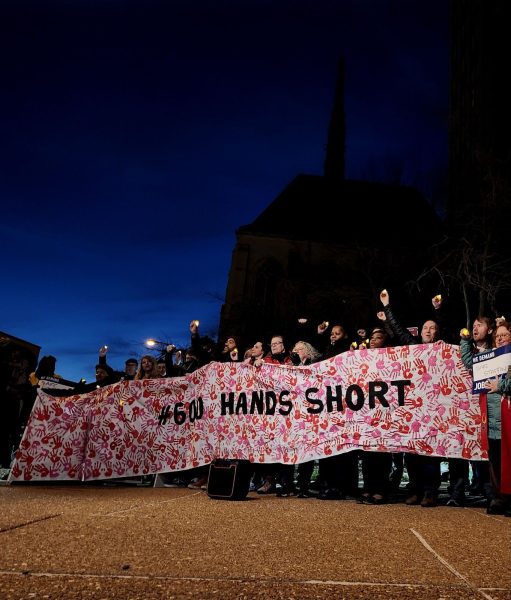
Sharon Spurlock • May 8, 2017 at 1:18 pm
Thanks for helping us promote respect!